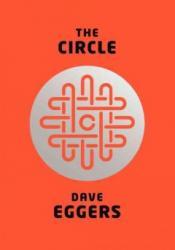
The Circle is an incredibly interesting book. The novel centers around Mae Holland, who sets off to work at The Circle after graduating from college. As she works through her career, Mae starts to question this highly acclaimed tech company and its Three Wise Men. Its main ideas discuss privacy, and specifically, how corporate run privacy standards lead into modern governmental systems. The ideas play into the fascinating world building around Mae Holland and her ideas of digital utopianism. The way she questions mob mentality behind the hive mind that can be global datafication is unique and provides for a great read. While the characters are somewhat lack luster, the novel makes up for it with its social construction and suspense. While there are some plot holes, the holistic concept is incredible. Overall, I would recommend this book to anyone interested in the digital world or dystopian-like settings.
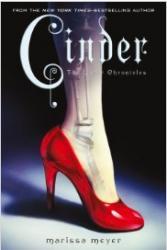
For years, I had heard of The Lunar Chronicles and thought people were referring to the two Sega Saturn video games, Lunar: Silver Star Story and Lunar 2: Eternal Blue. However, seeing as most people haven’t heard of these video games, I eventually figured out that they referred to the Young Adult series of books. While 2012 was definitely around the height of the re-imagined fairy tale craze, I do have to admit that this science-fiction take on these classic stories is a fresh new way of adapting the plots that we all grew up with through Disney movies.
The first book in the series, Cinder, takes Cinderella's down-and-out heroine and updates her to a cyborg unaware of her royal origins. What made this story engaging was figuring out how the standard trappings of the Cinderella story would be adapted to this futuristic setting. Granted, this made some of the plot points more than obvious well before they happened, but I usually ended up smiling at the bits of homage that Cinder paid to its origins—such as a “pumpkin” of a car and the leaving behind of certain footwear.
While the plot was mostly predictable, I appreciated the awkward “teenager” dialogue of the titular protagonist but only to a point. I’ll admit that YA books have a kind of frenetic style that matches their main characters' emotional turbulence, and Cinder certainly reads like a teenage girl replete with the insecurities, slang, and missed steps that a full-grown adult wouldn’t necessarily have as character quirks. The problem is that having to follow such a snarky young individual for so long through the story makes it eventually grate on my nerves, especially when the path she needs to take in her life is so obvious. Then again, perhaps I’m just a crotchety old man who isn’t in-tune with the youth anymore.
A great sci-fi Cinderella retelling, I give Cinder 4.0 stars out of 5.

For years, I had heard of The Lunar Chronicles and thought people were referring to the two Sega Saturn video games, Lunar: Silver Star Story and Lunar 2: Eternal Blue. However, seeing as most people haven’t heard of these video games, I eventually figured out that they referred to the Young Adult series of books. While 2012 was definitely around the height of the re-imagined fairy tale craze, I do have to admit that this science-fiction take on these classic stories is a fresh new way of adapting the plots that we all grew up with through Disney movies.
The first book in the series, Cinder, takes Cinderella's down-and-out heroine and updates her to a cyborg unaware of her royal origins. What made this story engaging was figuring out how the standard trappings of the Cinderella story would be adapted to this futuristic setting. Granted, this made some of the plot points more than obvious well before they happened, but I usually ended up smiling at the bits of homage that Cinder paid to its origins—such as a “pumpkin” of a car and the leaving behind of certain footwear.
While the plot was mostly predictable, I appreciated the awkward “teenager” dialogue of the titular protagonist but only to a point. I’ll admit that YA books have a kind of frenetic style that matches their main characters' emotional turbulence, and Cinder certainly reads like a teenage girl replete with the insecurities, slang, and missed steps that a full-grown adult wouldn’t necessarily have as character quirks. The problem is that having to follow such a snarky young individual for so long through the story makes it eventually grate on my nerves, especially when the path she needs to take in her life is so obvious. Then again, perhaps I’m just a crotchety old man who isn’t in-tune with the youth anymore.
A great sci-fi Cinderella retelling, I give Cinder 4.0 stars out of 5.

For years, I had heard of The Lunar Chronicles and thought people were referring to the two Sega Saturn video games, Lunar: Silver Star Story and Lunar 2: Eternal Blue. However, seeing as most people haven’t heard of these video games, I eventually figured out that they referred to the Young Adult series of books. While 2012 was definitely around the height of the re-imagined fairy tale craze, I do have to admit that this science-fiction take on these classic stories is a fresh new way of adapting the plots that we all grew up with through Disney movies.
The first book in the series, Cinder, takes Cinderella's down-and-out heroine and updates her to a cyborg unaware of her royal origins. What made this story engaging was figuring out how the standard trappings of the Cinderella story would be adapted to this futuristic setting. Granted, this made some of the plot points more than obvious well before they happened, but I usually ended up smiling at the bits of homage that Cinder paid to its origins—such as a “pumpkin” of a car and the leaving behind of certain footwear.
While the plot was mostly predictable, I appreciated the awkward “teenager” dialogue of the titular protagonist but only to a point. I’ll admit that YA books have a kind of frenetic style that matches their main characters' emotional turbulence, and Cinder certainly reads like a teenage girl replete with the insecurities, slang, and missed steps that a full-grown adult wouldn’t necessarily have as character quirks. The problem is that having to follow such a snarky young individual for so long through the story makes it eventually grate on my nerves, especially when the path she needs to take in her life is so obvious. Then again, perhaps I’m just a crotchety old man who isn’t in-tune with the youth anymore.
A great sci-fi Cinderella retelling, I give Cinder 4.0 stars out of 5.

For years, I had heard of The Lunar Chronicles and thought people were referring to the two Sega Saturn video games, Lunar: Silver Star Story and Lunar 2: Eternal Blue. However, seeing as most people haven’t heard of these video games, I eventually figured out that they referred to the Young Adult series of books. While 2012 was definitely around the height of the re-imagined fairy tale craze, I do have to admit that this science-fiction take on these classic stories is a fresh new way of adapting the plots that we all grew up with through Disney movies.
The first book in the series, Cinder, takes Cinderella's down-and-out heroine and updates her to a cyborg unaware of her royal origins. What made this story engaging was figuring out how the standard trappings of the Cinderella story would be adapted to this futuristic setting. Granted, this made some of the plot points more than obvious well before they happened, but I usually ended up smiling at the bits of homage that Cinder paid to its origins—such as a “pumpkin” of a car and the leaving behind of certain footwear.
While the plot was mostly predictable, I appreciated the awkward “teenager” dialogue of the titular protagonist but only to a point. I’ll admit that YA books have a kind of frenetic style that matches their main characters' emotional turbulence, and Cinder certainly reads like a teenage girl replete with the insecurities, slang, and missed steps that a full-grown adult wouldn’t necessarily have as character quirks. The problem is that having to follow such a snarky young individual for so long through the story makes it eventually grate on my nerves, especially when the path she needs to take in her life is so obvious. Then again, perhaps I’m just a crotchety old man who isn’t in-tune with the youth anymore.
A great sci-fi Cinderella retelling, I give Cinder 4.0 stars out of 5.
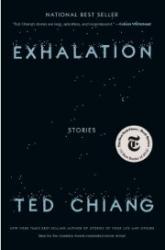
My librarian uncle introduced me to Ted Chiang recently, and I was so intrigued by such an award-winning author who wrote exclusively in short stories that I had to check out one of his books. Exhalation is a collection of these stories, and I can see why Chiang is lauded as a writer. It seems that modern science fiction is too focused on new technologies and how they can lead to utopias or dystopias. In Chiang’s stories, I saw some stark realism that took well-tread topics of the genre and examined them through a lens that was extremely realistic to how society would function with such advancements.
It was refreshing—a sigh of fresh air, or exhalation, if you will—to read stories about parallel universes, artificial intelligence, and time travel that didn’t stick to the same tropes that have made science fiction almost boring in comparison. In the end, Chiang is so concise with his language as to create these universes anchored in our reality and uncover all the intricate ways in which new technologies would change it without delving into the fluff of a full-blown novel. And perhaps that’s what makes these short stories work: focusing on how people interact with new technology, instead of just society at large.
These stories' personal nature hits home, mostly because they were pulled from current technologies and extrapolated into the fringe sciences that are on the cutting edge. For instance, we already record much of our days, so how does our memory change if we have a perfect record of the past? Additionally, how many technologies are made widely available as entertainment first, and how many interest groups pop up as fans of these technologies until they are eventually made obsolete? These and many other thoughtful topics are only some of the reasons I would recommend any fan of true sci-fi read this book.
A collection of some of the best sci-fi stories I’ve ever read, I give Exhalation 5.0 stars out of 5.

My librarian uncle introduced me to Ted Chiang recently, and I was so intrigued by such an award-winning author who wrote exclusively in short stories that I had to check out one of his books. Exhalation is a collection of these stories, and I can see why Chiang is lauded as a writer. It seems that modern science fiction is too focused on new technologies and how they can lead to utopias or dystopias. In Chiang’s stories, I saw some stark realism that took well-tread topics of the genre and examined them through a lens that was extremely realistic to how society would function with such advancements.
It was refreshing—a sigh of fresh air, or exhalation, if you will—to read stories about parallel universes, artificial intelligence, and time travel that didn’t stick to the same tropes that have made science fiction almost boring in comparison. In the end, Chiang is so concise with his language as to create these universes anchored in our reality and uncover all the intricate ways in which new technologies would change it without delving into the fluff of a full-blown novel. And perhaps that’s what makes these short stories work: focusing on how people interact with new technology, instead of just society at large.
These stories' personal nature hits home, mostly because they were pulled from current technologies and extrapolated into the fringe sciences that are on the cutting edge. For instance, we already record much of our days, so how does our memory change if we have a perfect record of the past? Additionally, how many technologies are made widely available as entertainment first, and how many interest groups pop up as fans of these technologies until they are eventually made obsolete? These and many other thoughtful topics are only some of the reasons I would recommend any fan of true sci-fi read this book.
A collection of some of the best sci-fi stories I’ve ever read, I give Exhalation 5.0 stars out of 5.

My librarian uncle introduced me to Ted Chiang recently, and I was so intrigued by such an award-winning author who wrote exclusively in short stories that I had to check out one of his books. Exhalation is a collection of these stories, and I can see why Chiang is lauded as a writer. It seems that modern science fiction is too focused on new technologies and how they can lead to utopias or dystopias. In Chiang’s stories, I saw some stark realism that took well-tread topics of the genre and examined them through a lens that was extremely realistic to how society would function with such advancements.
It was refreshing—a sigh of fresh air, or exhalation, if you will—to read stories about parallel universes, artificial intelligence, and time travel that didn’t stick to the same tropes that have made science fiction almost boring in comparison. In the end, Chiang is so concise with his language as to create these universes anchored in our reality and uncover all the intricate ways in which new technologies would change it without delving into the fluff of a full-blown novel. And perhaps that’s what makes these short stories work: focusing on how people interact with new technology, instead of just society at large.
These stories' personal nature hits home, mostly because they were pulled from current technologies and extrapolated into the fringe sciences that are on the cutting edge. For instance, we already record much of our days, so how does our memory change if we have a perfect record of the past? Additionally, how many technologies are made widely available as entertainment first, and how many interest groups pop up as fans of these technologies until they are eventually made obsolete? These and many other thoughtful topics are only some of the reasons I would recommend any fan of true sci-fi read this book.
A collection of some of the best sci-fi stories I’ve ever read, I give Exhalation 5.0 stars out of 5.

My librarian uncle introduced me to Ted Chiang recently, and I was so intrigued by such an award-winning author who wrote exclusively in short stories that I had to check out one of his books. Exhalation is a collection of these stories, and I can see why Chiang is lauded as a writer. It seems that modern science fiction is too focused on new technologies and how they can lead to utopias or dystopias. In Chiang’s stories, I saw some stark realism that took well-tread topics of the genre and examined them through a lens that was extremely realistic to how society would function with such advancements.
It was refreshing—a sigh of fresh air, or exhalation, if you will—to read stories about parallel universes, artificial intelligence, and time travel that didn’t stick to the same tropes that have made science fiction almost boring in comparison. In the end, Chiang is so concise with his language as to create these universes anchored in our reality and uncover all the intricate ways in which new technologies would change it without delving into the fluff of a full-blown novel. And perhaps that’s what makes these short stories work: focusing on how people interact with new technology, instead of just society at large.
These stories' personal nature hits home, mostly because they were pulled from current technologies and extrapolated into the fringe sciences that are on the cutting edge. For instance, we already record much of our days, so how does our memory change if we have a perfect record of the past? Additionally, how many technologies are made widely available as entertainment first, and how many interest groups pop up as fans of these technologies until they are eventually made obsolete? These and many other thoughtful topics are only some of the reasons I would recommend any fan of true sci-fi read this book.
A collection of some of the best sci-fi stories I’ve ever read, I give Exhalation 5.0 stars out of 5.
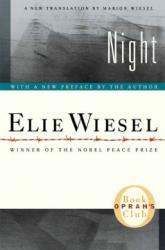
I had to read this book in English class Freshman year. I honestly wasn't expecting to like it as much as I did. It's a true story called "Night" written first hand by Elie Wiesel about the Holocaust. It's about a young boy and his family that got sent to Auschwitz and Buchenwald concentration camps. This book is extremely well written, and is a really sad story. There was one part, I won't spoil it, but I couldn't stop crying. "Night" really gives you a look at what it would have been like to be in Elie's shoes. Overall, of course this is quite a sad book, but I would highly highly recommend!!

A Wrinkle in Time is unlike any Science Fiction novel I have ever read. It is exciting and scientific and even a little romantic like every other science fiction novel, but it grapples with other ideas like how one thing (yet to be revealed) helps to conquer the darkness inside us and all around. It follows Margaret (Meg) Murry in the search for her missing father but at the same time follows a search in understanding herself. She wants more than anything to find her father because he was the one who made her feel like herself and now that he is gone, she feels lost. Her genius younger brother Charles Wallace is a major player in Meg's journey to find herself and in the end is what will trigger the one thing she has that the darkness does not.
I first read this book in third grade as required reading, but since then I have probably read it over ten times. It is one of those books that you get something new out of every time you read it. I have also never read such a creative book. Madeleine L'Engle makes it interesting and unpredictable while at the same time tying in internal struggles. Everyone can relate to Meg and will learn from her struggles by reading this book.

A Wrinkle in Time is unlike any Science Fiction novel I have ever read. It is exciting and scientific and even a little romantic like every other science fiction novel, but it grapples with other ideas like how one thing (yet to be revealed) helps to conquer the darkness inside us and all around. It follows Margaret (Meg) Murry in the search for her missing father but at the same time follows a search in understanding herself. She wants more than anything to find her father because he was the one who made her feel like herself and now that he is gone, she feels lost. Her genius younger brother Charles Wallace is a major player in Meg's journey to find herself and in the end is what will trigger the one thing she has that the darkness does not.
I first read this book in third grade as required reading, but since then I have probably read it over ten times. It is one of those books that you get something new out of every time you read it. I have also never read such a creative book. Madeleine L'Engle makes it interesting and unpredictable while at the same time tying in internal struggles. Everyone can relate to Meg and will learn from her struggles by reading this book.
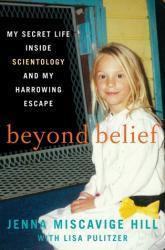
This book is very informative, albeit slow paced. I learned a lot about Scientology and its disturbing practices. If you're looking for a fast-paced nail biter of a memoir, this isn't it, but if you want to learn about what Scientology really is, then give this book a try.

This book is very informative, albeit slow paced. I learned a lot about Scientology and its disturbing practices. If you're looking for a fast-paced nail biter of a memoir, this isn't it, but if you want to learn about what Scientology really is, then give this book a try.
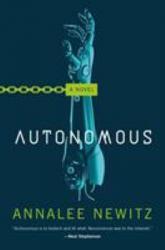
Science fiction often seeks to answer the moral and ontological questions that we’ll soon face in future technological landscapes. When I picked up Autonomous, I was expecting an examination of artificial intelligence and the ability for robots and machines to eventually become sentient. Unfortunately, that was only about half of the book that I ended up reading. The fact that there were two dueling scientific topics in this book made its message muddled, let alone misleading. It really should have been branded/titled as a book about pharmaceuticals and the patent system that holds the healthcare system hostage.
While I’m sure the pharmaceutical elements of this story are accurate (at least in a fictional context), this wasn’t the reason I wanted to read Autonomous. Granted, telling two parts of the story—from the POV of the pirate chemist and from the POV of the law enforcement sent to catch her—was a good way to reveal the plot so that each POV doesn’t know what the other side knows. That being said, the AI element of this story seemed to be relegated to a sub-plot in the law enforcement POV that ended up being disappointing to me.
I’ll grant that realistic characters may not be likable characters, but in the end, I was not too fond of any of the characters in this book—with the AI being the one exception. I didn’t care for the chemist’s messy past just as much as I didn’t care for the clearly homophobic law enforcement officer. Would the “romance” in the story have been different if the AI’s origin was different? Sure, creating morally gray characters makes the story more real, but it ultimately just made me irritated with these individuals. And since the story didn’t know which scientific concept to pursue, the whole idea of the AI being “autonomous” could have been cut, and the plot really wouldn’t have changed at all, leading me to my initial statement that the title of this book is misleading.
A misleading title for a book about pharmaceutical piracy, I give Autonomous 2.5 stars out of 5.

Science fiction often seeks to answer the moral and ontological questions that we’ll soon face in future technological landscapes. When I picked up Autonomous, I was expecting an examination of artificial intelligence and the ability for robots and machines to eventually become sentient. Unfortunately, that was only about half of the book that I ended up reading. The fact that there were two dueling scientific topics in this book made its message muddled, let alone misleading. It really should have been branded/titled as a book about pharmaceuticals and the patent system that holds the healthcare system hostage.
While I’m sure the pharmaceutical elements of this story are accurate (at least in a fictional context), this wasn’t the reason I wanted to read Autonomous. Granted, telling two parts of the story—from the POV of the pirate chemist and from the POV of the law enforcement sent to catch her—was a good way to reveal the plot so that each POV doesn’t know what the other side knows. That being said, the AI element of this story seemed to be relegated to a sub-plot in the law enforcement POV that ended up being disappointing to me.
I’ll grant that realistic characters may not be likable characters, but in the end, I was not too fond of any of the characters in this book—with the AI being the one exception. I didn’t care for the chemist’s messy past just as much as I didn’t care for the clearly homophobic law enforcement officer. Would the “romance” in the story have been different if the AI’s origin was different? Sure, creating morally gray characters makes the story more real, but it ultimately just made me irritated with these individuals. And since the story didn’t know which scientific concept to pursue, the whole idea of the AI being “autonomous” could have been cut, and the plot really wouldn’t have changed at all, leading me to my initial statement that the title of this book is misleading.
A misleading title for a book about pharmaceutical piracy, I give Autonomous 2.5 stars out of 5.
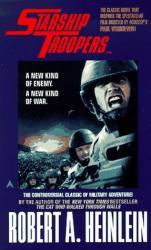
Starship Troopers exemplifies the signature writing style of Heinlein: an outrageous setting that still manages to capture familiar aspects of everyday life. I marveled at the intricate universe Heinlein crafts. He describes every aspect of political relations with alien species and the intricacies of a military that ranges across the stars. The book follows a boy named Juan Rico as he comes of age and joins the infantry. Heinlein describes every aspect of Juan’s life in basic training and the great battles of his career like an ancient epic; sparing no detail and giving elaborate descriptions of the enemies of humanity and the battles in which they were defeated. Starship Troopers is the perfect science fiction novel for someone who is looking for heaps of action combined with drops of philosophy and social commentary, all brought together into one spectacular and dazzling universe.
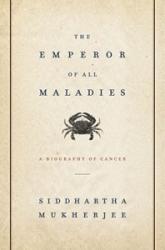
The Emperor of all Maladies is an informative and gripping history of cancer. Starting with the first recorded cases in ancient times and the remedies used by ancient doctors and progressing to the medical breakthroughs of chemotherapy and radiation, the book provides a wealth of information in a riveting tale. Dr. Siddhartha Mukherjee tells the stories of cancer’s most prominent adversaries like Dr. Sidney Farber as they work to develop life-saving treatments and procedures. The book is quite lengthy but kept me engaged throughout while teaching me about cancer history and treatment in a form that feels more like a novel than a textbook. If you want to learn more about one of the most prolific diseases in human history while viewing history through the lens of cancer researchers, The Emperor of all Maladies is perfect for you!

The Emperor of all Maladies is an informative and gripping history of cancer. Starting with the first recorded cases in ancient times and the remedies used by ancient doctors and progressing to the medical breakthroughs of chemotherapy and radiation, the book provides a wealth of information in a riveting tale. Dr. Siddhartha Mukherjee tells the stories of cancer’s most prominent adversaries like Dr. Sidney Farber as they work to develop life-saving treatments and procedures. The book is quite lengthy but kept me engaged throughout while teaching me about cancer history and treatment in a form that feels more like a novel than a textbook. If you want to learn more about one of the most prolific diseases in human history while viewing history through the lens of cancer researchers, The Emperor of all Maladies is perfect for you!

The Emperor of all Maladies is an informative and gripping history of cancer. Starting with the first recorded cases in ancient times and the remedies used by ancient doctors and progressing to the medical breakthroughs of chemotherapy and radiation, the book provides a wealth of information in a riveting tale. Dr. Siddhartha Mukherjee tells the stories of cancer’s most prominent adversaries like Dr. Sidney Farber as they work to develop life-saving treatments and procedures. The book is quite lengthy but kept me engaged throughout while teaching me about cancer history and treatment in a form that feels more like a novel than a textbook. If you want to learn more about one of the most prolific diseases in human history while viewing history through the lens of cancer researchers, The Emperor of all Maladies is perfect for you!



 Ruth Holley Library will be temporarily closed for approximately one week starting Mon., Dec. 2 to complete roof repairs.
Ruth Holley Library will be temporarily closed for approximately one week starting Mon., Dec. 2 to complete roof repairs.